- Home
- D. H. Lawrence
John Thomas and Lady Jane Page 2
John Thomas and Lady Jane Read online
Page 2
CHAPTER II
It was her father, old Sir Malcolm, who warned her. He was big and burly and beefy-seeming, and he enjoyed life carefully. But his nose was fine and subtle, if selfish, and he had a certain Scottish eerie feeling about people.
‘Connie, I hope you’re not putting too great a strain on yourself,’ he said, following her up to her room. He could not stand his son-in-law, but he had a certain selfish affection, or clannish feeling, for his motherless daughters. Now he came after her with his queer Scotch persistency.
‘What strain, Father?’ She looked at him with big eyes. He too had rather big blue eyes: a handsome man: but he knew perfectly well how selfish he was, for himself, and how selfish other people were, for themselves, without knowing it. Connie could not bluff him.
‘You’re not yourself! You’re running for a fall, the pair of you.’
Her heart sank as her father said it. From him, she knew it was true. She looked at him, at bay.
‘In what way?’ she said.
‘I’ll sit down if I may,’ he said, looking round. ‘You have a charming room. I always liked your way of arranging an interior. You have a gift for it.’
Constance didn’t like phrases such as ‘arranging an interior’. She felt she never did arrange one. She only made a home round herself, in every room, as far as she could. But she loved her own private sitting-room: she never called it a boudoir. It was up two flights of stairs, at the south-east corner of the house, looking over the gardens behind the hall, and across a corner of the park at the woods.
Her room had delicate pinky-grey walls, and on the floor Italian rush matting, that smelled sweet of rushes, with a few plum-coloured and blue Persian rugs, thin and silky and rather worn, near the sofa and by the fire and by the slender rose-wood writing table, a very delicate old blue one by the spinet. Her chairs and sofa-lounge were covered with chintz with tulips, and behind the sofa was a piece of toile de Jouy. She had a few modern pictures, and a very fine German print of a Renoir nude. Old Sir Malcolm stood in front of this last, in silence. He was a landscape painter, sometimes did a portrait, but never nudes. A queer, sad wistfulness came over him as he gazed at the tender, pink, marvelously fleshy back of Renoir’s nude woman. He knew he could never have come within miles of such a lovely, living thing.
Constance was sitting in a low chair near the hearth, where a small fire of logs was burning in the yellowed marble fireplace. She loved a finely, delicately-proportioned marble fireplace. This one she had brought from France, and had had it put into her own room.
But now she had almost lost the sensuous pleasure, the glow of warmth, which her own lovely and familiar possessions gave her. She had not many things: a few rugs and pictures, a few pieces of china and ivory. But she had had a great deal of real delight out of them. Now, her nerves were going dead. She knew it. Her room was dead to her.
She envied her father as he stood so fresh and burly and canny, in front of the Renoir nude. His eyelids had a funny wistful tilt, a little plaintive and childish, very celtic. He was feeling mentally the voluptuous desirableness of that Renoir woman. His plaintive childishness came from his own sensuous desire. At the same time, as an artist he was examining the work of art, and was almost depressed by its sensitive fulness. Constance knew him fairly well. She knew the various expressions of his eyelids, and the subtle changes in his fine, perhaps rare feminine nose. He was not a man of strong character. But he was canny, he poised himself, carefully, and he lived scrupulously for himself alone. Nevertheless, if he was to live successfully for himself, he must take others sufficiently into account. He was by no means a blind egoist: rather a far-sighted and very wary one.
He came at last to the chair opposite Constance, and sat down slowly, but gracefully. He made no comment on the picture that had engrossed him, but spread his white, well-shapen hands with the old signet-ring, to the fire, and gazed rather dimly at the glow. Constance said nothing.
‘I find your house depressing, though, in spite of your taste in. arranging it. I’m afraid I count the hours till I can get out of it again,’ he said, with amiable poise.
‘Yes! I know you do!’ she replied simply. He seemed to her so often like a spoilt child, under his worldly grand manner and masculinity. It was his generation. He hated having to bother about her. Yet he was going through with it.
‘It would be absurd, Connie, to ask you if you are happy,’ he said, looking at her warily from under his white eyebrows.
‘Why?’ she said.
He smiled faintly, dismally, but with a feint of gallantry.
‘Well now, are you?’ he said. ‘You don’t give anyone that impression. Would you say yourself you are happy?’
‘I think I am doing what I ought to do,’ she said.
‘Perhaps! Perhaps! But also, perhaps you aren’t taking enough things into count, you know.’
‘What things?’
‘Yourself! You’ve put the screw down on yourself. You’re screwed up — or screwed down! Your mother did that to herself: and it was that and nothing else killed her. — But even so, she lived till she was over forty. — You know I don’t believe in screwing oneself up, not for anything. — What is the point? You screw yourself up beyond a natural pitch, in order to do your duty. As a result, you collapse, and your duty collapses with you. You’ve neither been kind to yourself nor to anybody else.’ He spoke in a measured, slightly pompous way. But that was just manner with him.
‘Do you think I shall collapse?’ she asked.
‘Why, decidedly I do! I am sure you will. You give me the same feeling of alarm your mother gave me so often.’ He looked at her from an anxious half-wise face. But she knew it was true what he said. And his curious, clannish concern for her somehow supported her.
‘What am I to do, then?’ she asked, looking with her big blue eyes at him. Their eyes met. His gave her one glance, then turned aside. His eyes were dark blue like hers. But his were always turning aside, hers gazed full and slow. She continued to gaze at him, though she had met his glance, and knew what it meant. He hated Clifford, he loathed Clifford’s special Englishy style, which was ahead of his own style. And he wanted her to find some other man. But of course, he would never say so.
‘That is the difficulty,’ he said. ‘It is so difficult to advise you. —But you need more life. — You need more society, more enjoyment. — You need young people, of your own age. You need to dance — yes, and you need to flirt a little. — Not with the sort of fellows Clifford has here. They’re no good to any woman. —Come away with me to the South of France for a month or two! Come on, now, do, Connie! It will be best for you in the long run — even best for Clifford. I’ll stand the racket.’
Sir Malcolm had a second wife, a woman much younger than himself, and with a much larger income. But he and she went their own ways a good deal, quite amiably. He had a vast range of friends. He could easily look after Connie for a month or two.
She sighed, and said:
‘I can’t leave Clifford in the winter.’
‘Why not? Let him come along then. Other men do, in his condition. Everybody knows it’s the war.’
‘Oh no!’ she said.
And as he had lived for fourteen years with her mother’s obstinacy, he knew quite well when to give up. When you can do nothing with people, you leave them to do things to themselves.
‘Well, Connie!’ he said. ‘You are doing yourself an injustice, and you’re doing yourself damage, and there’ll be a heavy bill to pay for it. Your feelings are going paralysed — not only your legs! If you want it, have it! — You’re going paralysed. Instead of living the life of a young healthy woman, you’re going para ysed. But if you want it, it’s useless for anyone to talk.’ He rose abruptly to leave the room, exactly as he used to do with Connie’s mother. At the door, he said, ‘I want to speak with Clifford this evening. Give me an opportunity, will you? I must leave tomorrow.’
She looked up at him as he stood, very portly and v
ery lordly, at the door.
‘All right, Father!’ she said softly.
It was the quiet way his first wife used to speak to him. But Connie was somehow softer, warmer, she troubled him more.
The meals were always rather a trial. Clifford was wheeled in his chair to the table. An elderly maid waited and carried the dishes. Clifford watched the food in that intense way, that seemed so out of place merely for food. He ate a good deal, and said little. Sir Malcolm, who was very nervously sensitive to his company, hated eating at Clifford’s table. The wine was a white claret, and he hated that. He asked for a whiskey and soda, and he felt the elderly maid begrudged it him. There was a devastating sense of economy, especially in the drinks. The food was good and sufficient. But when Sir Malcolm wanted another whiskey and soda, a certain frosty tension was felt in the air. He, of course, was fully aware of it. If Constance had not been so deadened, she would have minded bitterly. But now she merely thought: ‘Oh well!’ and drearily took no further notice.
The servants were all old servants of the family, and Clifford was one of those very refined people who must put their will over others. The servants were his servants, and had to follow his feelings. And he, poor fellow, couldn’t help begrudging the whiskey. It was one of his economical points. Simpson, the parlour-maid, elderly and grey and neutral, must, however, also begrudge the whiskey, and administer it coldly and contemptuously, with the mean power of asserting her feelings which trained servants have.
Because her father was so much on edge, Constance decided to leave the two men together after dinner. Let them then have it out. They all took coffee in the parlour next to Clifford’s bedroom, the parlour with his books and gramophone and all the gramophone records, and with the small studio easel he sometimes worked at. When coffee was over, Constance slipped upstairs.
Sir Malcolm was smoking one of his own cigars. Since his catastrophe, Clifford didn’t smoke, and he didn’t like the smell of tobacco. But of course he didn’t say so to Sir Malcolm. He begged his father-in-law to smoke, and offered him cigars. But Sir Malcolm preferred his own: and he knew quite well that the smoke got on Clifford’s nerves. But it soothed his own, so there you are!
He stood big and handsome and immaculate in his dinner-suit, feet apart, back to the fire, smoking his corona. Clifford sat in his wheeled chair, in tense silence.
‘I don’t think, you know,’ said Sir Malcolm, taking his cigar from his mouth, ‘that Connie is getting altogether a fair show, do you?’ And he put his cigar back.
Clifford went white with anger. For some time he did not answer. It was a devilish silence, that would have blasted any tender heart. But Sir Malcolm was a man of the world.
‘I don’t quite understand vague phrases like a fair show,’ said Clifford, very quietly, but with deadly, mild superiority.
‘Probably it is too vague! What I wish to say, is that living a shut-up life as she lives here, without any of the necessary interests and pleasures of her natural youth, she is bound to suffer, and these years may do her a grave damage — a grave damage.’
Sir Malcolm was not going to mince matters with his son-in-law. He knew how sharp Clifford was.
‘Is she shut up here?’ asked Clifford.
‘She is shut up! Whether by her own will or not, makes no matter. She is shut up, and shut off from the life that is natural to her age.’
‘She is unfortunate in being my wife, it is true—’
‘I agree, she is unfortunate — not exactly in being your wife, but in having to share the very grievous misfortune which has happened to you: and which no one regrets more profoundly than I do.’
Another complete and lengthy silence, which Sir Malcolm, was too astute to break. The image of calm bonhomie, he shook his cigar-ash in the fire. But the tip of his nose was very white.
‘What kind of damage to Connie do you anticipate?’ asked Clifford, with perfect sang froid.
‘Damage! Serious damage! Either her nerves will suffer —seriously! Or else there will be a collapse in her health — one of those illnesses that women get, and which are very often fatal’
Clifford remained completely motionless, staring in front of him. Sir Malcolm, going a little yellow under the eyes with rage, turned the stump of his cigar between his lips.
‘Where shall I get a drink?’ he asked, into the silence. ‘Oh!’ Clifford started guiltily, and looked round. ‘Didn’t she bring the tray in?’ He reached for the bell-push that hung on a cord on his chair.
There was dead silence until Simpson had taken the order, and had reappeared with the tray. Then there was a hissing of soda-water, and Sir Malcolm took a large mouthful of drink. It so exasperated Clifford, that he said:
‘And your remedy? Have you one to suggest?’
‘I should like her to come to the South of France with me, for the winter.’
‘For the winter! — Well, if she wishes to go, she is perfectly free.’
‘As you know,’ retorted Sir Malcolm, ‘she has a very high sense of duty, and therefore she is not free. Perhaps it is your duty to see she gets some kind of relief from the life she leads here.’
This again Clifford felt as pure insult. At the same time, he knew her father was, in a measure at least, justified.
‘I am to force her to go to the South of France for the winter?’ he asked, with his perfect sarcastic sang froid.
‘If you don’t use your influence to bring some change and some relief into her life, you will have her as badly off as yourself. I have known her mother. I lost Connie’s mother when Connie was a child of nine —’
‘And was Lady Reid also shut off from life?’ asked Clifford ironically.
‘Who, Lady Reid?’
‘Your wife, Connie’s mother.’
‘She was Mrs Reid. She didn’t live long enough. — If she was shut off from life, she shut herself off. But it had the same result. I always consider she killed herself.’
‘Yet she didn’t marry a misfortune, apparently!’ said Clifford. But as he said it, he knew he had gone too far. Connie’s mother had been bitterly jealous of her husband, but also, extremely ‘superior’ to him. The two things had made a dead-lock in her.
‘I am perfectly willing for Connie to winter in the South of France. I am perfectly willing for her to do anything that she wishes to do. But I can’t force her to live, can I?’
‘You might try,’ said Sir Malcolm. ‘She knows well enough it is useless to wish for something that there is no hope of ever getting.’
‘What could she wish for, that she has no hope of ever getting?’ asked Clifford coolly. For a moment, he didn’t realise how rash he was.
His father-in-law looked down at him from under curious, expressive eyelids. Sir Malcolm’s eyes hardly changed, it was the white eyelids that did the speaking — and there was an infinite malice and mocking on his handsome face.
‘If you don’t know that, I don’t,’ said Sir Malcolm.
And the iron went right down into Clifford’s soul. He really had got into the habit of forgetting that Constance might have any conjugal rights: or any conjugal desires. But now, savagely, Sir Malcolm pushed the reminder right home. Then he drank off his whiskey and went to the door.
‘I’ll see where she is,’ he said.
And he went out, leaving the dagger thrust home into Clifford’s consciousness.
He departed as early as possible the next morning, without having seen his son-in-law. Constance could tell he was pining to get out of the midlands atmosphere. He had just come south from the moors, he was pining to move on to some new congenial set. He just took his little Wragby unpleasantness en passant.
‘Well, goodbye Daughter! Don’t forget what I’ve been telling you, and try to get a move on. You’ve got your brake jammed. Believe me, you’d better get help to get it taken off, or your axle’s going to break. You know what I mean. Goodbye! Come to Roquebrune, don’t you be put off.’
His car buzzed and swung away from the steps.
The old knight was gone, on his gay crusade. And in spite of herself, Constance felt against him some of the anger her mother used to feel: the way he slipped through one’s fingers! And in spite of herself, she saw her life suddenly with her father’s eyes, as a dreary, dismal, priggish, despicable existence, and as a cowardly acceptance of the principle of Hell-on-earth. Sir Malcolm was no butterfly. He believed firmly that life was almost always Hell-on-earth, for almost everybody. He had a great dread of Hell-on-earth, and also, a vague dread of Hell-hereafter. He knew it was a cunning fox which died a natural death. He was determined to die a natural death, at as late a date as possible. Furthermore, he was determined astutely to get his paradise this side of the grave, like the French lady, ‘to make sure of it’. It needed a good deal of skill. But then, he had had long practice. There were various hounds of heaven which could make life Hell-on-earth for a man: the hound of duty, the hound of jealous love, the hound of other-people’s burdens always snapping at one’s heels. He didn’t pretend to outstrip these hounds. He had a select little scrip full of dog-biscuits, and when one of these hellish hounds-of-heaven got too close on his heels, he threw it a dog-biscuit and was off again, fleet as any Atalanta.
So Constance saw him now, disappearing in the direction of the coloured flags of his goal. And he seemed to her at least half in the right. He was a burden to nobody, and he looked so handsome. He was wise for himself!

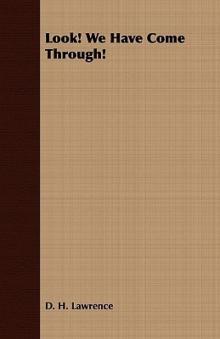 Look! We Have Come Through!
Look! We Have Come Through!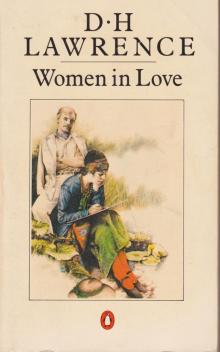 Women in Love
Women in Love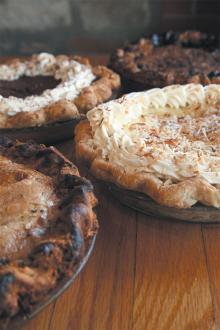 The Ladybird
The Ladybird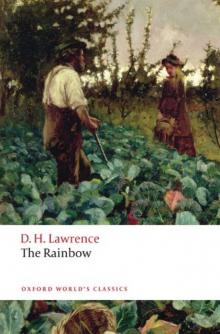 The Rainbow
The Rainbow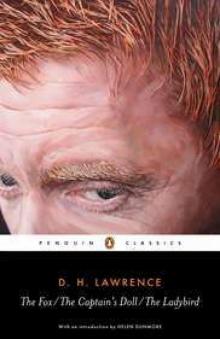 The Captain's Dol
The Captain's Dol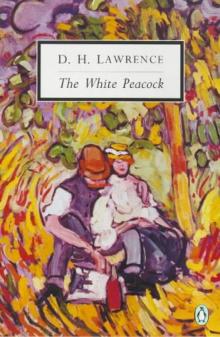 The White Peacock
The White Peacock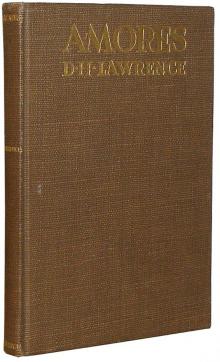 Amores
Amores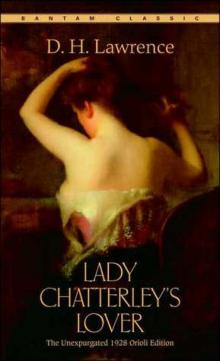 Lady Chatterley's Lover
Lady Chatterley's Lover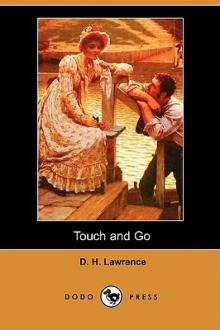 Touch and Go
Touch and Go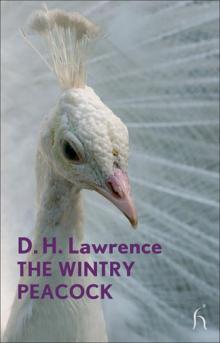 The Wintry Peacock
The Wintry Peacock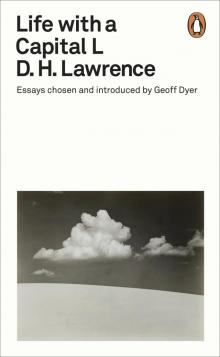 Life with a Capital L
Life with a Capital L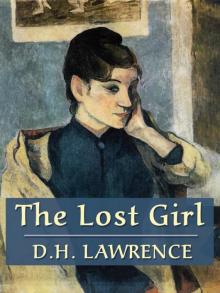 The Lost Girl
The Lost Girl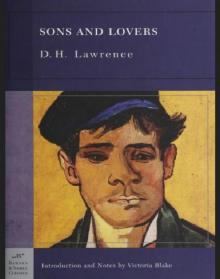 Sons and Lovers
Sons and Lovers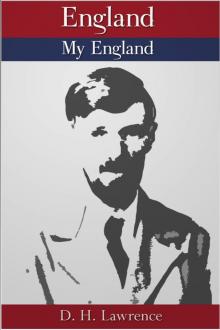 England, My England
England, My England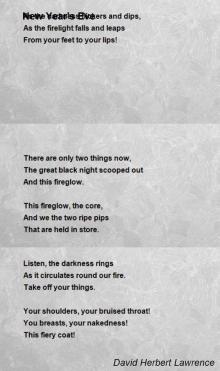 New Poems
New Poems Twilight in Italy
Twilight in Italy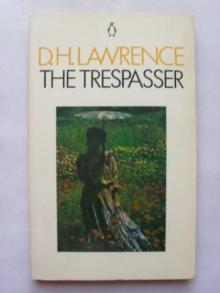 The Trespasser
The Trespasser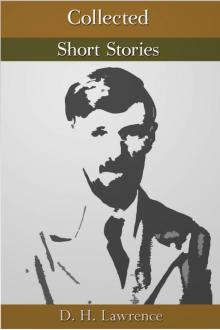 The Collected Short Stories
The Collected Short Stories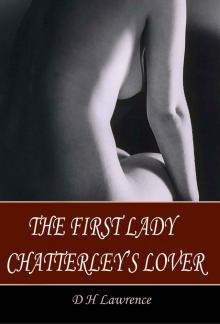 The First Lady Chatterley's Lover
The First Lady Chatterley's Lover Kangaroo
Kangaroo Bay
Bay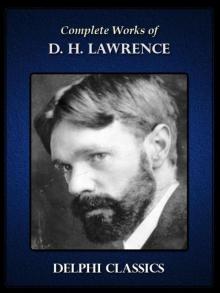 Complete Works of D.H. Lawrence
Complete Works of D.H. Lawrence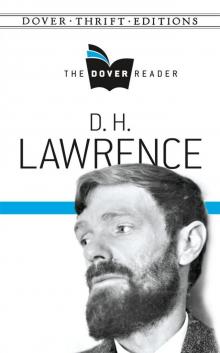 D H Lawrence- The Dover Reader
D H Lawrence- The Dover Reader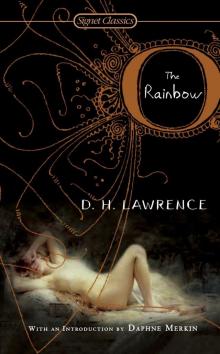 The Rainbow (100th Anniversary ed.)
The Rainbow (100th Anniversary ed.)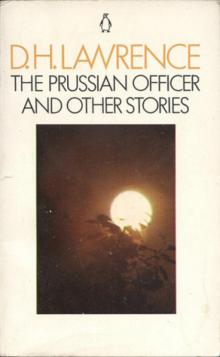 The Prussian Officer
The Prussian Officer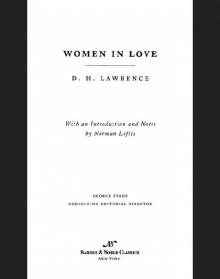 Women in Love (Barnes & Noble Classics Series)
Women in Love (Barnes & Noble Classics Series)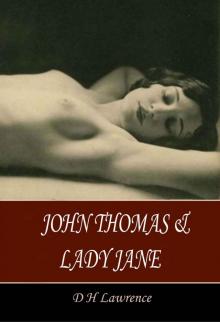 John Thomas and Lady Jane
John Thomas and Lady Jane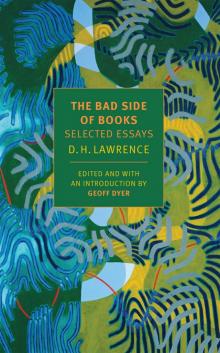 The Bad Side of Books
The Bad Side of Books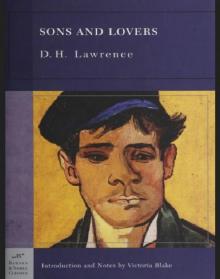 Sons and Lovers (Barnes & Noble Classics Series)
Sons and Lovers (Barnes & Noble Classics Series) Selected Stories
Selected Stories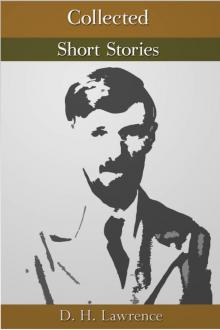 Collected Short Stories
Collected Short Stories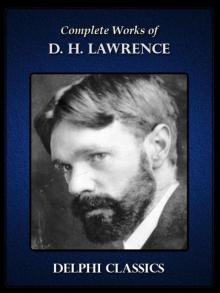 Complete Works of D.H. Lawrence (Illustrated)
Complete Works of D.H. Lawrence (Illustrated)